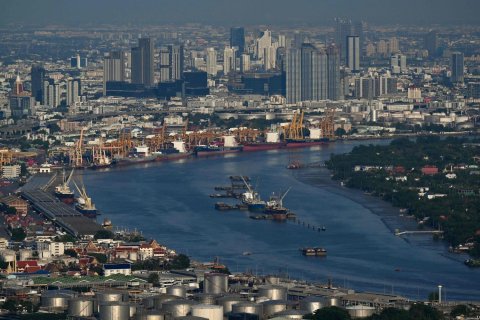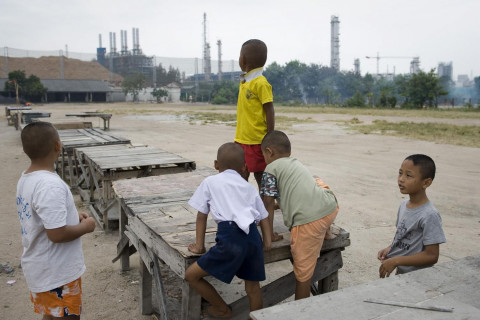Showing 1 - 10 of 16
The effects of unfinished momentum
News, Peerasit Kamnuansilpa, Published on 08/11/2025
» Why do some nations surge confidently into the future while others advance only in half-steps, not declining but not accelerating either? In their influential book Why Nations Fail (first published in 2012), Daron Acemoglu -- now a Nobel Prize economist -- and James Robinson, both economists and political scientists at the University of Chicago, offer a helpful lens for understanding Thailand's development path without casting blame or provoking division.
Thailand must redefine FDI for future
News, Peerasit Kamnuansilpa, Published on 14/08/2025
» Thailand's economic future looks increasingly uncertain. Once a rising star among emerging markets, the country now faces persistent stagnation. A key reason lies in how we have treated foreign direct investment (FDI) -- not as a strategic lever for national economic development but as a short-term fix driven by rent-seeking behaviour, bureaucratic collusion, and a failure to safeguard the nation's long-term economic interests and its goals for equitable development.
Thailand still has chance to shine
Oped, Peerasit Kamnuansilpa, Published on 31/07/2025
» Thailand's economy is losing momentum. Growth rates have steadily declined, from 7.2% in 2012 to just 1.9% in 2023. Without a new vision for development, the country faces the real possibility of becoming stuck in permanent stagnation. The absence of bold leadership and structural reform has left Thailand vulnerable, while its regional peers -- Singapore, China, and South Korea -- surge ahead. These countries have demonstrated that visionary and compassionate leadership, combined with political reform and good governance, can transform the economic fortunes of an entire nation.
Rethinking what it means to be human
News, Peerasit Kamnuansilpa, Published on 05/07/2025
» In the decades ahead, Thailand will not collapse in a blaze of war, disease, or climate catastrophe. Rather, it will quietly wither from within. The twin forces of demographic decline and digital automation are converging with astonishing speed, and yet our political and moral imaginations remain unprepared.
Rethinking leadership in Thailand
News, Peerasit Kamnuansilpa, Published on 14/06/2025
» Thailand stands at a development crossroads. On the surface, the nation has invested heavily in education, innovation, and technical training. Each year, it produces a new wave of high-achieving graduates, particularly in the fields of science and technology. Yet, the country remained mired in a persistent middle-income trap. The question is not whether Thailand has talent, but whether it has the institutional culture and civic direction to channel that talent into meaningful national progress.
Lessons and hopes from May 11 poll
Oped, Peerasit Kamnuansilpa, Published on 22/05/2025
» The May 11 municipal elections across Thailand, although extensive in scope, offered little to celebrate in terms of democratic progress. Rather than signalling a political shift or new energy in local governance, the results underscored a deeply familiar pattern: vote buying remains the dominant strategy in Thai politics.
The roadway to enabling governance
Oped, Peerasit Kamnuansilpa, Published on 30/04/2025
» On May 11, communities across Thailand will vote in 2,469 municipal elections. Despite these polls being routine, they are a pivotal test of the country's commitment to moral leadership and enabling governance at the grassroots level.
Drug crisis deepens our economic woes
Oped, Peerasit Kamnuansilpa, Published on 11/12/2024
» Thailand faces a dual crisis that threatens the foundation of its future economic development: declining fertility rates, leading to a shrinking population and a simultaneous surge in drug addiction rates.
Thailand's development model splutters
Oped, Peerasit Kamnuansilpa, Published on 16/03/2023
» Location-based economic development (LED) strategies, defined as government efforts to improve a particular area's economic and social conditions, were implemented in economically advanced countries long before they were in Thailand.
Rescuing Thailand from the middle-income trap
Oped, Peerasit Kamnuansilpa, Published on 07/07/2022
» Eleven years ago this month, Thailand made a laudable achievement by moving from the category of a lower middle-income country to an upper-middle-income country.












